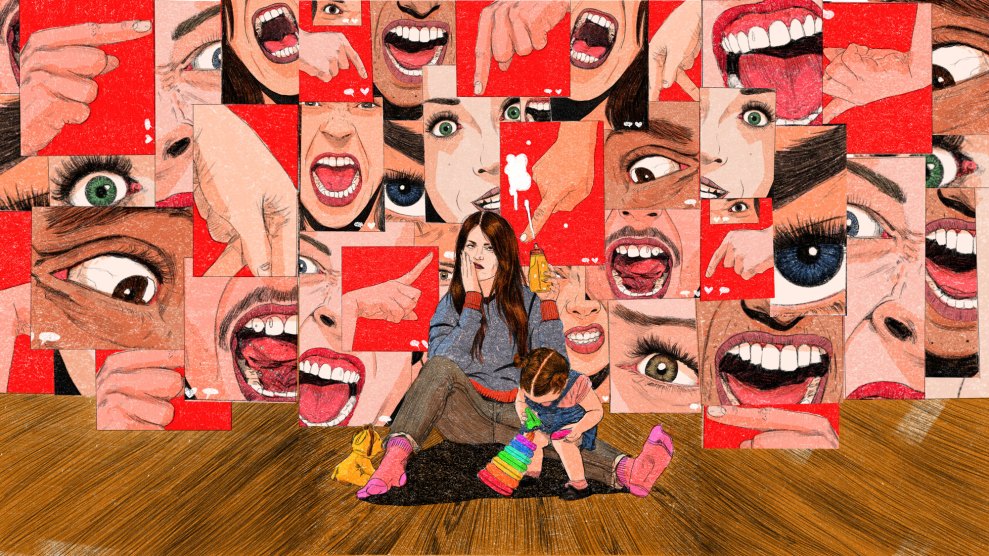Greg Brown is a folk hero who flies below the radar. He’s been making his own brand of acoustic music for 30 years, attracting a loyal audience, and selling out shows wherever he goes. At 51, he lives in a book-stuffed house in a small Iowa town and tours about 150 days a year — often with his good pal Ani DiFranco.
Brown sings about lost loves and old cars, about mountains and fishing, about carnal rapture and corporate greed. And he’s not afraid to drop the names of Kenneth Rexroth or John Muir in his ballads. Covenant, his latest CD, is a testament to the things that matter — family, love, connection — and he brings these themes to life with wry humor and gentle irony. One of his best new songs, “‘Cept You & Me, Babe,” begins:
Half the people you see these days are talking on cell phones,
Driving off the road, and bumping into doors.
People used to spend quite a bit of time alone.
I guess nobody’s lonely anymore…
‘Cept you and me, babe. ‘Cept you and me.
In Brown’s musical universe, the personal expresses the political, and then brings it back home. He spoke to us from his recording studio in St. Paul, Minnesota.
Mother Jones: You’ve been at this for three decades, but you’ve never signed up with a major label. You must have had some contact from the record people over the years.
Greg Brown: A little bit, here and there. But nothing serious. I don’t think people hear my songs and think, “Well this is a way to make a bunch of money.”
MJ: How have you succeeded for so long without the luxury of airplay?
GB: I do get airplay — on public radio and community radio. It’s amazing that there still are quite a few little community radio stations around the country. And once in a while…I remember driving in Montana and I could only get one station in my car. It was a commercial radio station, playing pop songs. And then one of my songs came on. The announcer came on afterward and said, “I have no idea what that song was about.”
MJ: Is there a thread that holds all your work together?
GB: Probably a sense of community, what makes it and what breaks it. I don’t think of community as being a romantic notion. I think it’s as vital as air and water, and so I think that informs a lot of what I write about. It could be a story about a couple, or a song about the slow death of the family farm or a small town.
MJ: How do politics inform your songwriting?
GB: My job as a songwriter is to write good songs. A while back I tried to write some more overtly political songs on an album called One Big Town, and those songs have not held up for me.
MJ: …”America Will Eat You.”
GB: I can’t even sing that anymore. I don’t think that good politics ever excuse a bad song.
MJ: On your new CD you sing, “I know what I’m here to do, to be of use.” What do you mean by that?
GB: I think the sweet thing about my job, more than the music I sing, is that I come into some town and a really cool community of people gets together. And they meet each other and maybe somebody falls in love or starts a little business together. I really see that as my role as I travel around the country.
MJ: Who are these people in your audience? Have you figured that out yet?
GB: They’re not really hardcore folkies, you know. They tend to be people who are looking for a different way, besides “How much money can I make?” And then, “How many things can I buy with it once I get that money?” They’re looking to live life a different way than this insane materialistic thing that’s going on in America.
MJ: You sing about old cars, farms, and fishing. What do you make of the impact of new technology on society?
GB: I think the Internet has real potential for building community. People all around the world talking to each other can’t be a bad thing. Of course, it also has the real potential for isolation and for, you know, just trying to sell more shit.
MJ: You’ve been nominated for two Grammies. Did you go to the ceremonies?
GB: No, no. [Laughs.] It’s impossible for me to think of music as a contest. All of the awards ceremonies, I mean I’m sure they’re fun for people, but they have no meaning to me.
MJ: You couldn’t see yourself sitting there with the camera focused on your face as they announce the Folk winner?
GB: [Laughs.] No. Anyway, I think for the Folk winner, probably somebody just pulls out an Instamatic.












